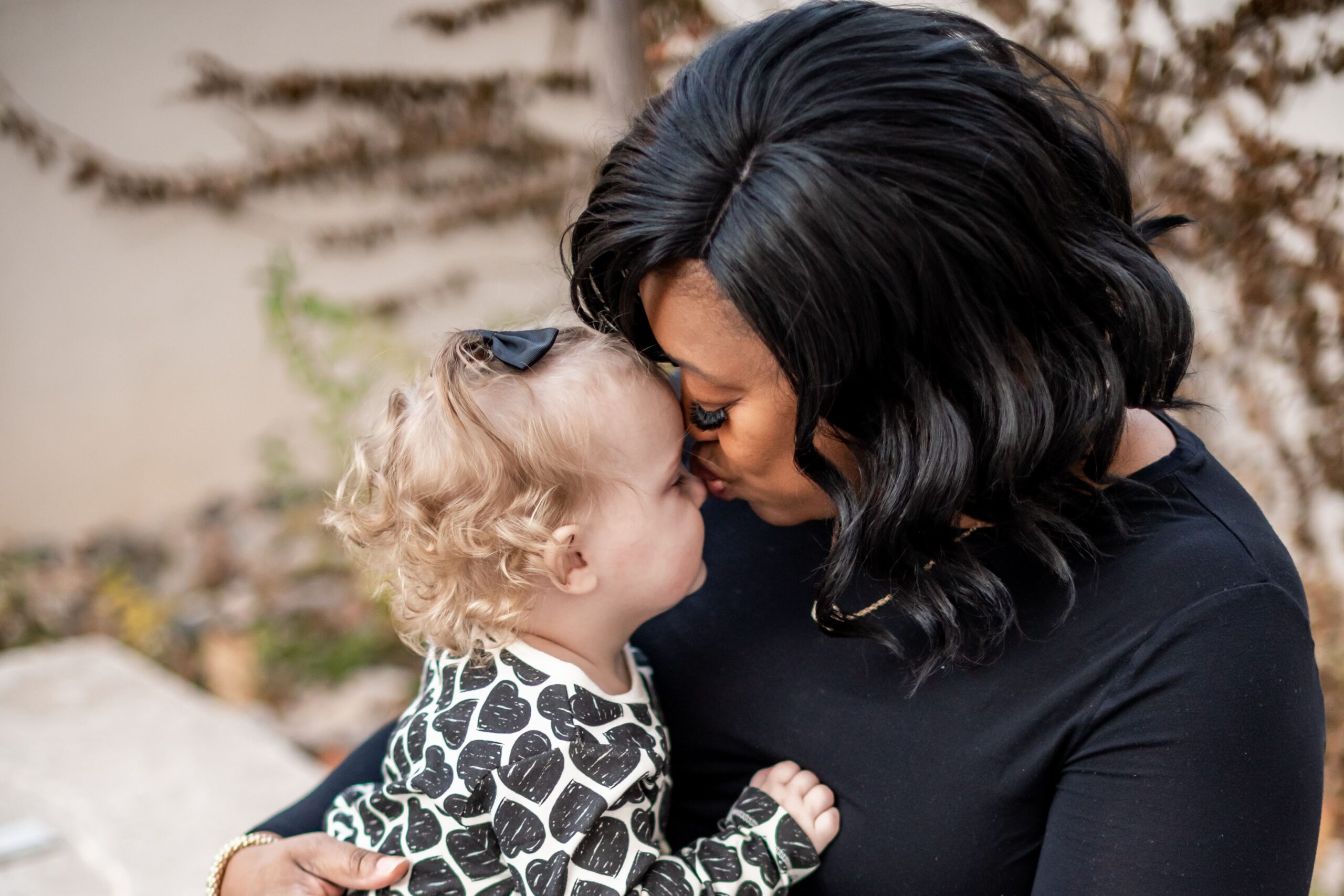
As a Black parent, it can be difficult to cope with the racism and discrimination we face. But don't worry – you are not alone. With many other households with racially blended families, I have created a blog and Facebook group that can help you find support and information.
A little about my family and myself: I was raised in a blended family throughout my immediate family. My father’s side is from the Virgin Islands, and my great-grandfather is Irish and migrated from Ireland in the late 1800s. I was also raised in a military family where most families were interracial, which impacted my views on race and culture. I love everyone.
I have five children: three girls and two boys. My oldest daughter is mixed, my oldest son is Black, my next daughter is adopted, and she is Black, my youngest daughter is adopted and is White, and my youngest son is foster (adoption pending) and is mixed. My daughter's adoptions were finalized in Nov 2020, and we celebrated with family via Zoom. My oldest daughter is an adult and lives in a different state, and the four youngest are in the home in High School, Elementary School, and Daycare. So to say I have a full age range is an understatement. There is a 15-year gap between my oldest child and the next; it is pretty much stair step afterward.
Adopting foster care was not my intention when I became a foster parent, but it was almost immediately recognized as a need early on. As a result, I have adopted three children and participated in over 30 family reunifications, even if the child was in my home only overnight.
I follow some families that have adopted White children on Facebook and TikTok, and I have read news stories of interactions with authorities from malls to airport security. I am grateful as, to date, the one nosy person who stood a little too close at the airport recognized that my White daughter, usually attached to my hip, is mine. I have not had any incidents since bringing her home from the hospital in July 2019.
Don’t get me wrong, we have gotten plenty of “looks,” but her energy matches theirs, and they move on without me saying a word.
We live in a bubble where everyone knows that she started as my foster daughter and fully participated in the reunification process that did not happen with her biological family resulting in them asking me to adopt her since our bond was so strong. Of course, there were plenty of other factors, but that is a story for another time.
Finding support
Raising kids across racial lines presents its own set of challenges and opportunities. Parents of biracial children and parents of transracially adopted children can find support and information in various places, including online communities. However, in searching online, there are not many resources to help families navigate challenging times and everyday concerns in our particular situation. We have unique family dynamics in that we are definitely in the minority of Black parents raising White children, and people (Black and White) aren’t used to it. I have had questions from both backgrounds ask why? Wasn’t there a White family available? What was I thinking? I’ve created a safe space for us on Facebook at Black Parents with White Children | Facebook.
A great online resource is EmbraceRace, which offers articles and webinars. Its website features Dr. Sandra “Chap” Chapman, a racial identity expert who advocates for positive socialization and development for children of mixed or biracial backgrounds. She discusses how race impacts how children perceive themselves and the benefits of promoting positive racial identity.
In recent years, Jones-Baldwin has been connecting with other Black parents raising children of different races. She started a blog called Raising Cultures, which has gained popularity across several social media platforms. The blog serves as a resource for parents and a supportive community.
Preparing for a blended family
Preparing for a blended family can be challenging, but it is not impossible. Most blended families live in mixed neighborhoods, and it is easier to integrate into the community. In addition, discussing family issues beforehand is one of the best ways to handle racially charged questions.
As a Black parent, recognize that your children's experiences will differ from those of your white children. However, you must prepare them for the experiences they will encounter.
Dealing with discrimination
As a parent, you should strive to teach your children about fairness, diversity, and inclusion from a young age. Talking to your children about the history of racism and civil rights is also important. Children learn by example, so it is important to challenge any bias you may have and to show respect for all people.
Join me at my blog for an open and supportive conversation at Black Parents with White Children | Facebook.